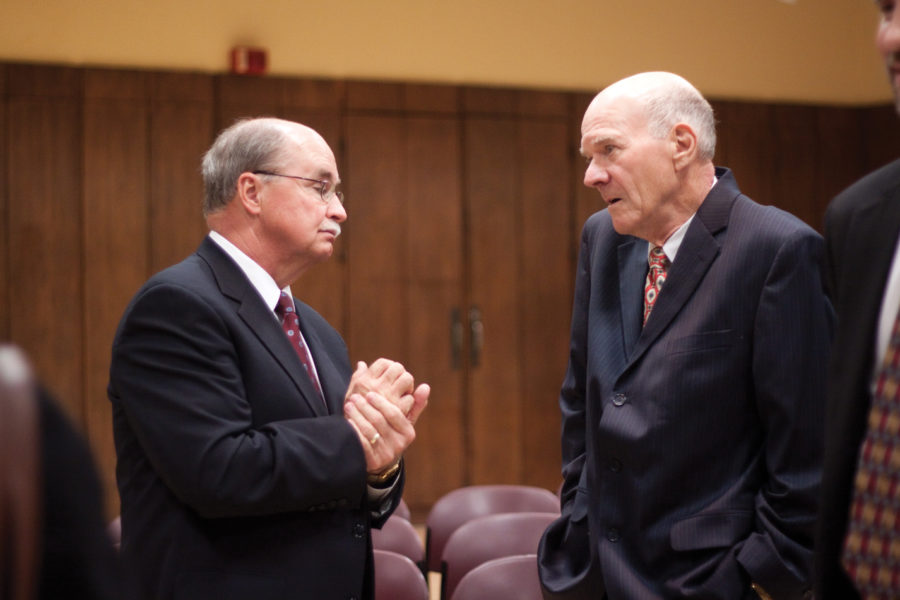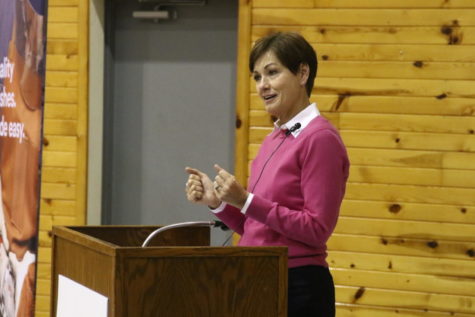Freddie Mac executive leads panel on economic crisis perspectives
October 28, 2010
The National Affairs Committee on Lectures kicked off its lecture series Thursday with, “Fixing Financial Markets: Views from Freddie, Finance and the Fed.”
“It falls under the umbrella for innovation,” said Claire Wandro, Lectures Program student co-chair. “It’s innovative with the solution of problems.”
Three different men spoke at the event, giving students three various perspectives on the progress of the financial market.
Don Bisenius, executive vice president of the Single Family Credit Guarantee Business at Freddie Mac, discussed Freddie Mac’s — along with Fannie Mae and Ginnie Mae — part in the housing crisis.
Although Freddie Mac was blamed for part of the housing market’s crash in 2008, it has helped homeowners to retain homes.
“Ninety-five percent of all mortgages today are being supported by Fannie Mae and Freddie Mac,” Bisenius said. “Half of the serious delinquencies (loans that are over three or more months past due or in foreclosure) have been helped by Freddie Mac. When people can’t cover [their homes], Freddie and Fannie smooth that out.”
Bisenius described the brighter side of the financial market, the improvements that had been made after the full effect of the financial crisis had begun to wear off, where as the other two speakers also discussed the period of time before the crash.
“In 1986 we passed a tax reform,” said Dan Laufenberg, former chief economist and vice president of Ameriprise Financial. “The only interest you could deduct was on mortgage.”
The reform was one of the beginning problems that would later lead to failure of the economy. Laufenberg described the reform, and said that people would rather get a home equity line of credit, rather than borrow money from the bank, because it was a tax advantage. They could borrow the money at a lower rate than they could at the bank.
He discussed other problems that led to the crisis.
“Financing became easier once interest rates came down,” Laufenberg said. “As interest rates come down, you can pay up. People abuse their interest rate. The misguided housing pilot caused problems over the last 20 years.”
Kevin Moore, senior vice president in charge of the Supervision and Risk Management Division of the Federal Reserve Bank of Kansas City, also discussed the issues of lower interest rates.
“We kept rates too low for too long, which contributed to this debacle,” Moore said. “Interest rates of .25 were actually negative when you factored it all together.”
The economic crisis made many banks and firms unwilling to lend to one another, which made it difficult to improve the problem.
“The fed stepped in as a mediator for the market to help people loan to each other,” Moore said. “I think for the most part, it worked. We averted a depression that lasted for 18 months.”
Although the current economy is not as impressive as it once was, Moore believes that the Midwest is better off than other areas of the United States.
“We’re in a much better position than the rest of the country,” Moore said. “We’ve been through a process, we’re not through it yet but like others, we’re learning from these processes.”
The Lectures Program invites multiple guests throughout the year for the benefit of students. It also takes suggestions of guests that students would be interested in hearing speak on campus.
















